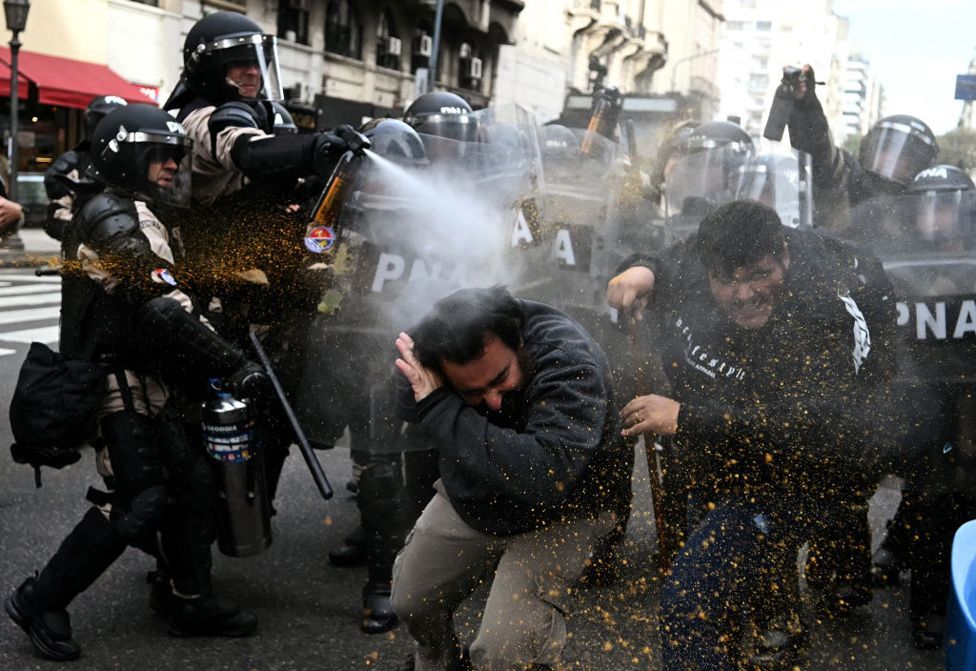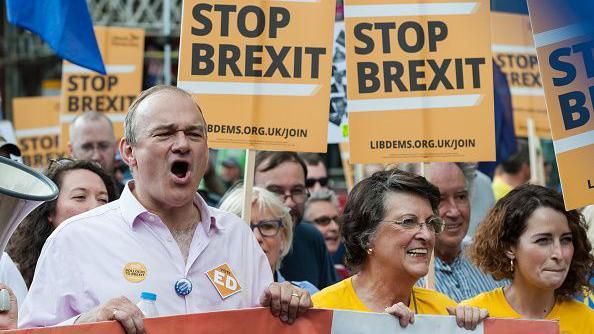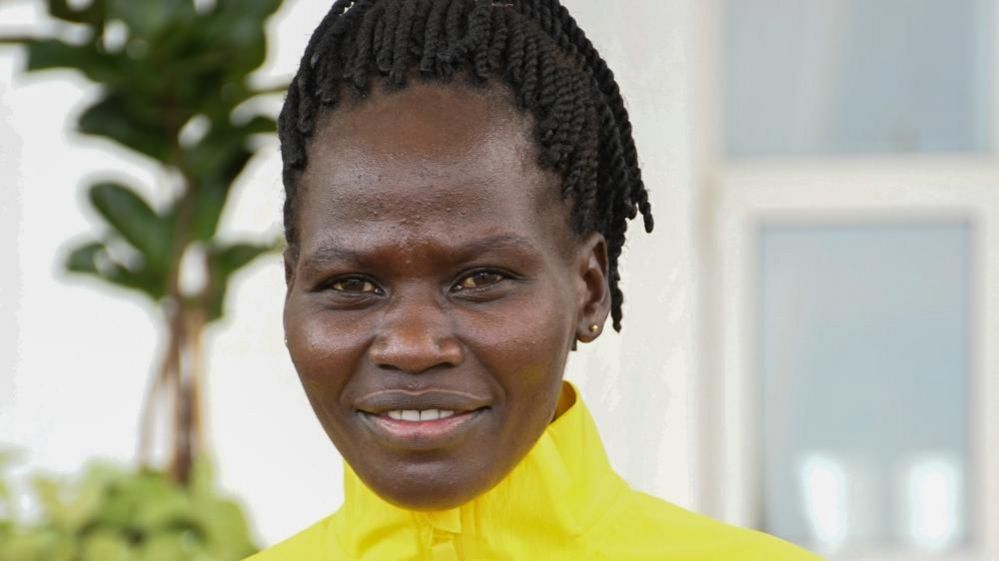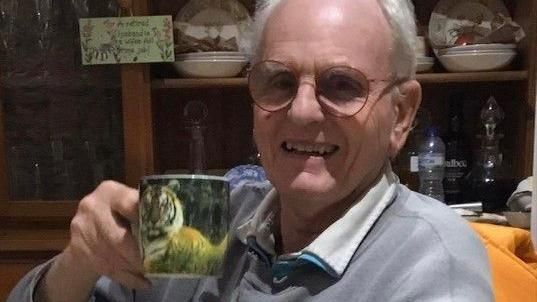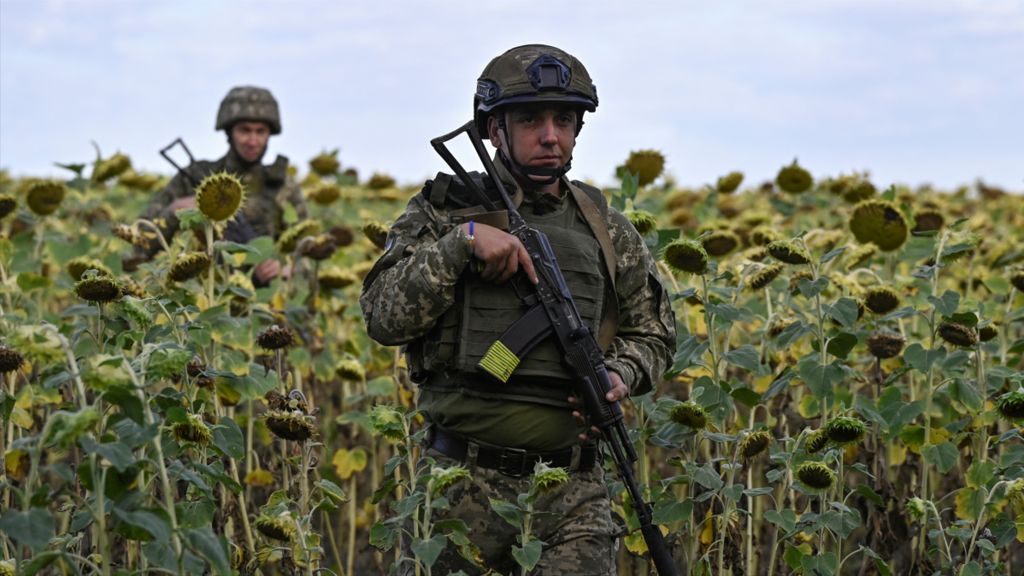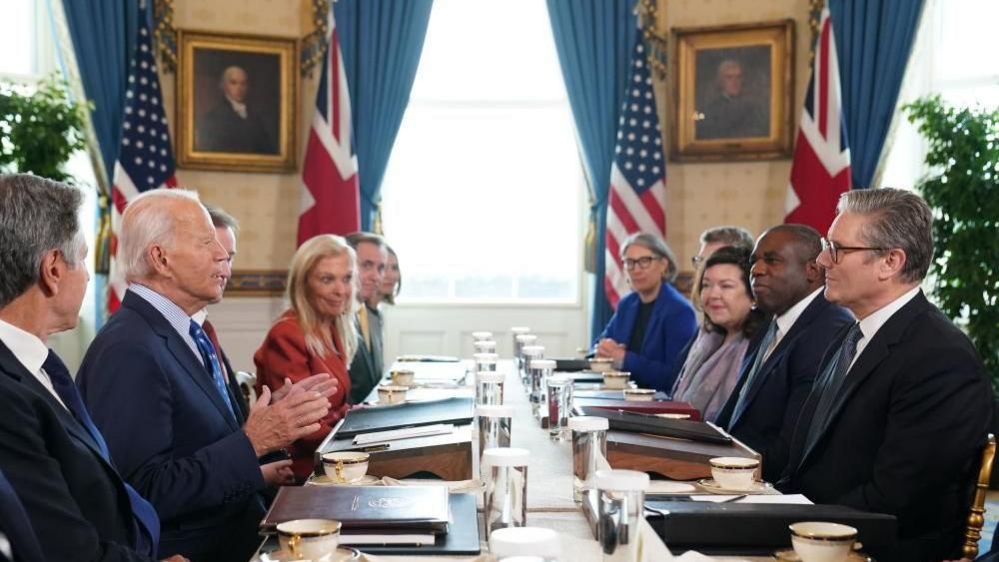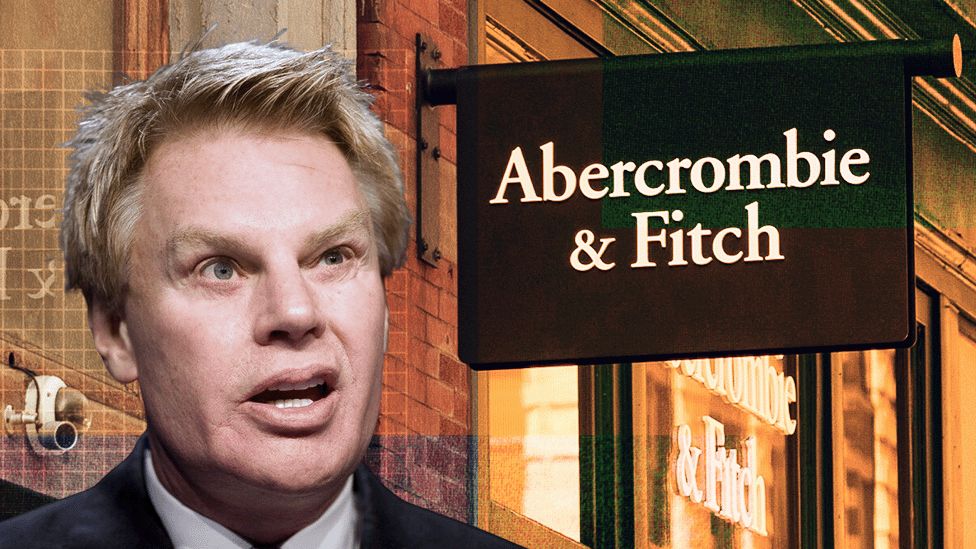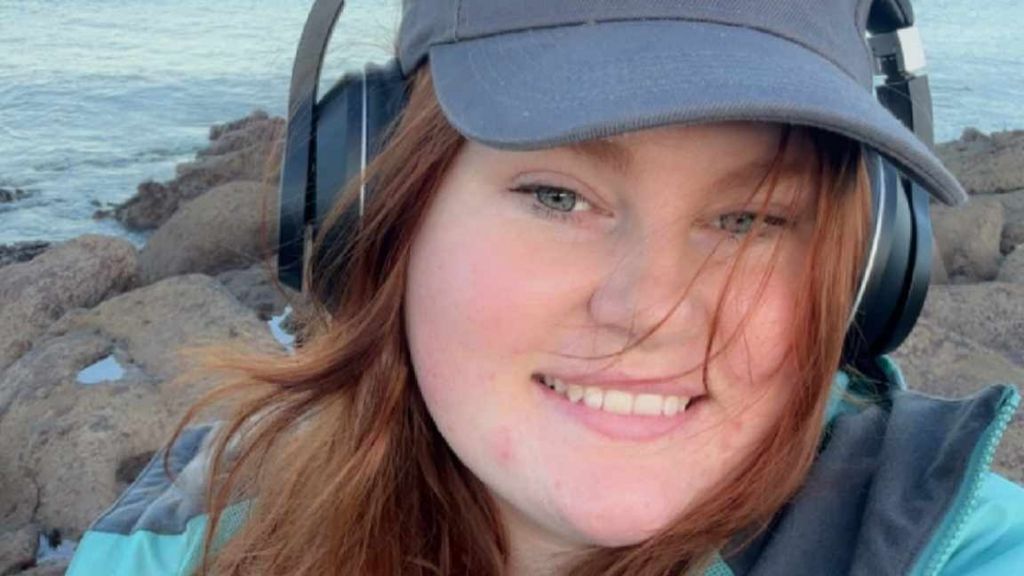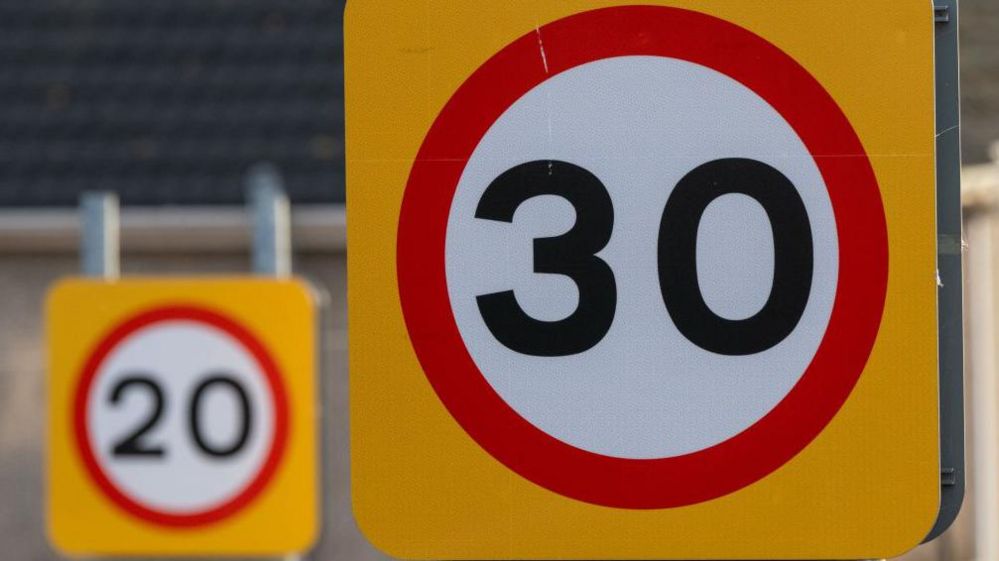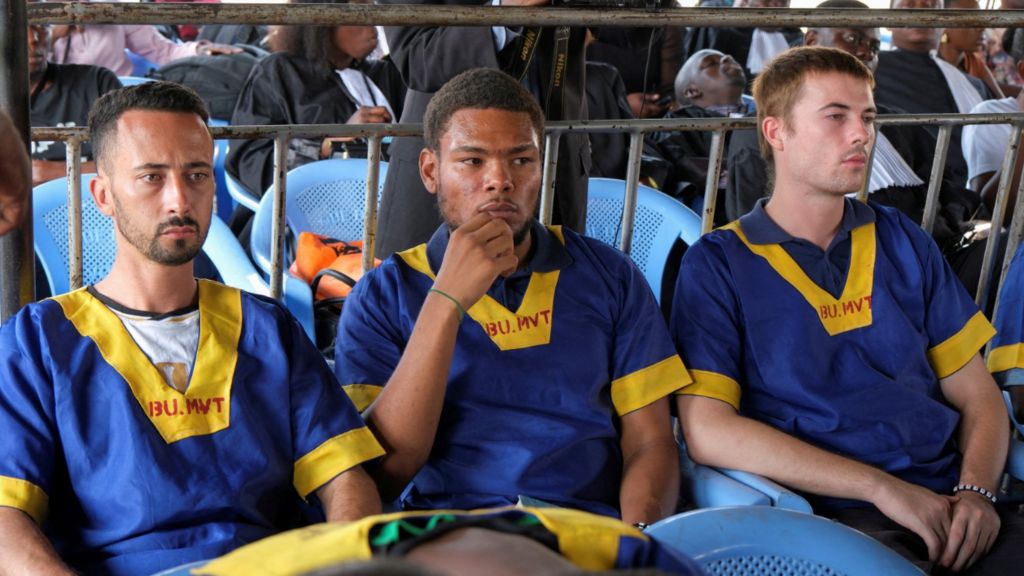Spray, sculpture and spacewalks: Photos of the week
- Published
A selection of striking news photographs taken around the world this week.

Riot police use pepper spray on demonstrators during a protest outside the National Congress in Buenos Aires as the Argentinian Chamber of Deputies debates whether to reverse a veto by President Javier Milei of a law to increase pensions.

Britain's Secretary of State for Justice, Shabana Mahmood, retrieves her shoe after the heel caught in paving outside 10 Downing Street in London.

North Korea has offered a glimpse into a uranium enrichment facility which produces material for its nuclear weapons. The state's Korean Central News Agency released images showing its leader, Kim Jong Un, inspecting the area.

UK Prime Minister Keir Starmer and Foreign Secretary David Lammy work on the plane as they fly to the USA for talks with President Joe Biden, on trying to resolve the conflicts in Ukraine and Gaza.

Central Investigation Bureau personnel help victims after heavy rain and flooding - the worst for 80 years - in Chiang Rai Province, northern Thailand.

People stop to look at a sculpture installed on the Sheffield & Tinsley Canal, England. The artwork - by Alex Chinneck - is 13 metres long and six metres high, and is painted in traditional canal boat colours. The main body of the boat was made from eight tonnes of steel, as a nod to Sheffield's history.

A firefighter battles the flames at an evacuated home in El Cariso near Lake Elsinore, California. Thousands were forced to evacuate, with warnings that the fire posed an immediate threat to life, as it burned more than 20,000 acres.

Pope Francis greets people after leading Holy Mass at the Esplanade of Tasi Tolu in Dili, East Timor. Some 600,000 people - almost half the country's population - gathered in a field for one of the biggest Masses of Pope Francis’s papacy.

A zoo worker plays with a female dwarf hippopotamus named Moo Deng, a name that roughly translates as "bouncy pig", at Khao Kheow Open Zoo near Pattaya in Thailand. Visitor numbers have doubled since her birth in July, according to the zoo.

US entrepreneur Jared Isaacman steps out of the hatch of the Dragon capsule during SpaceX's Polaris Dawn mission. The billionaire, along with engineer Sarah Gillis, became the first non-professional crew to perform one of the riskiest manoeuvres in space - a spacewalk.
